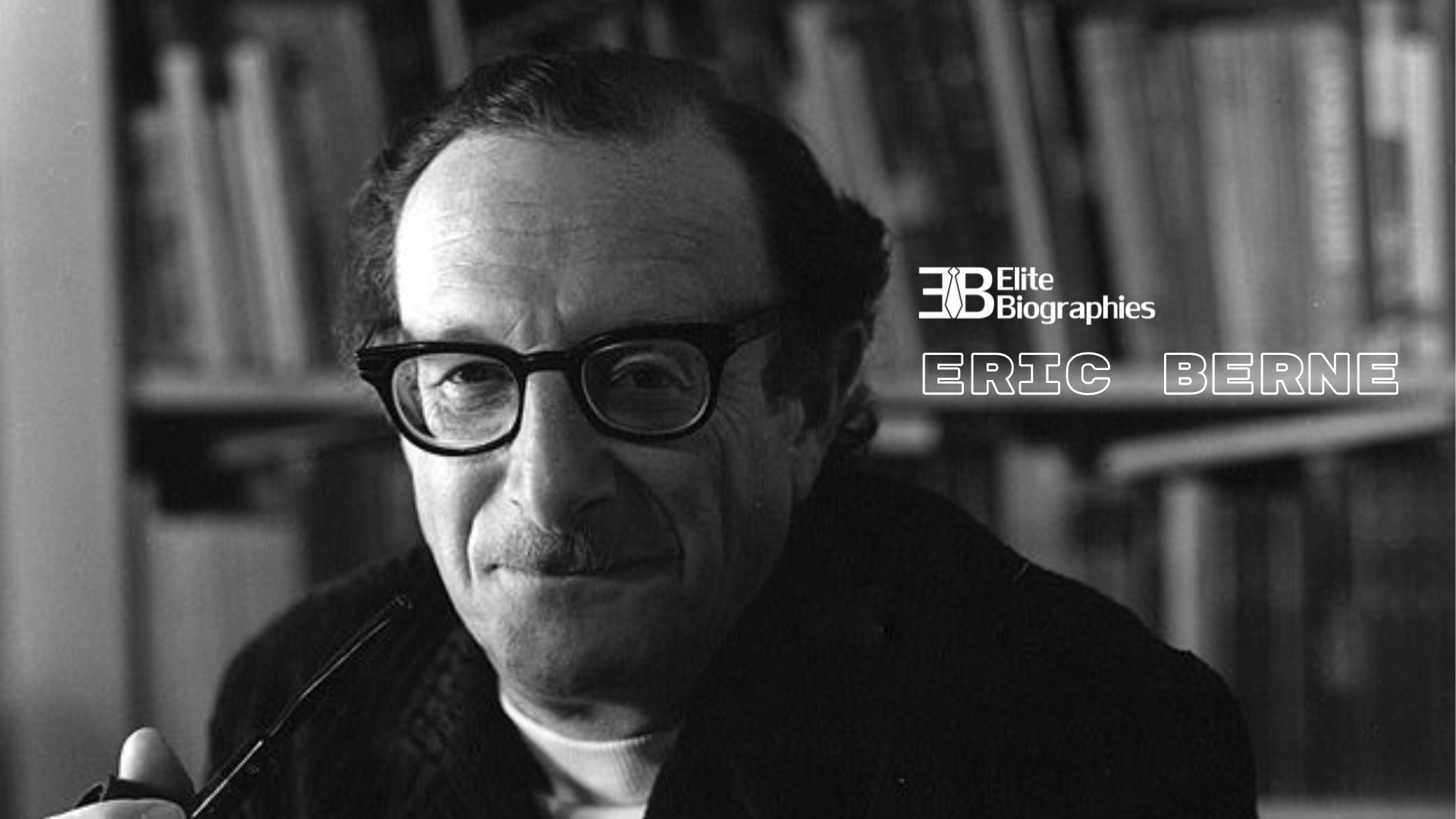Eric Berne

Eric Berne was a renowned Canadian-born psychiatrist best known for developing the theory of Transactional Analysis and for his book “Games People Play.” His work laid the groundwork for a modern understanding of social interactions and personality structures, influencing various therapeutic and psychological methods.
Early life
Eric Lennard Bernstein, better known as Eric Berne, was born on May 10, 1910, into a Jewish family in Montreal, Quebec, Canada. His parents were Sarah Gordon Bernstein, a respected writer and editor, and Dr. David Hillel Bernstein, a general practitioner. Eric’s sister Grace was brought into the household five years after he was born. His parents immigrated to Canada from Poland and Russia, and both graduated from McGill University in Montreal. Eric and his father had a close relationship; during the icy winters in Montreal, Eric would frequently ride in the horse-drawn sled with his father when he visited patients.
Berne’s father passed away from TB when he was just 11 years old. After that, his mother started working as an editor and writer to support the family. She had a big impact on Eric, motivating him to follow in his late father’s footsteps and become a doctor.
Berne completed his undergraduate studies in 1931. In 1935, he graduated from McGill University Medical School with an M.D. and a Master of Surgery. That same year, his pursuit of knowledge brought him to the United States, where he began with an internship at New Jersey’s Englewood Hospital. One year later, he started a two-year appointment as a psychiatrist at the Yale University School of Medicine’s Psychiatric Clinic.
After publicly changing his name from Eric Lennard Bernstein to Eric Berne and obtaining U.S. citizenship in 1939, Berne fully embraced a career in America. His career reached a major turning point ten years later in 1949 when he was admitted as a Fellow of the American Psychiatric Association. Berne’s family history and early experiences greatly influenced the style psychiatry and psychotherapy he would later practice.
Career
The creation of Transactional Analysis (TA), a theory of social interactions and communication, is the most notable accomplishment of Eric Berne’s career. Berne relocated to Carmel-by-the-Sea, California, after serving in the United States Army Medical Corps. There, he carried on with his psychiatric practice and started to develop the fundamental ideas of TA.
TA is a psychoanalytic theory and therapeutic approach in which social interactions are examined to ascertain the communicator’s ego state as a foundation for comprehending conduct. In his book “Games People Play,” Berne popularized the notion that social interaction patterns people follow are called “games,” and that these games are frequently influenced by their early life experiences. With its success as a best-seller and many language translations, this book helped Berne and his contributions gain international prominence.
Throughout his career, Berne maintained affiliations with a number of organizations, such as the Monterey Peninsula Psychiatric Community and the San Francisco Psychoanalytic Institute. In addition, he established the International Transactional Analysis Association (ITAA), a scholarly group dedicated to the advancement of Transactional Analysis.
His legacy lives on through the many practitioners of TA, books, and articles discussing his theories, ensuring that his contributions to psychology and psychotherapy are not forgotten.
Both psychology and psychiatry have been greatly touched by Berne’s life and contributions. His creation of Transactional Analysis and his book “Games People Play” offered profound understandings of the nature of relationships and human interaction. His academic achievements have left a long impact, influencing many individuals and experts in understanding and enhancing human social behavior.

Net Worth
While the exact net worth of Eric Berne at the time of his death in 1970 is not publicly documented, his impact on psychology and psychotherapy was substantial. His books, especially “Games People Play,” were commercially successful and continue to be influential in the fields of psychology, therapy, and counseling. His intellectual contributions were his real wealth, significantly shaping the way we understand human interactions and communication.
Achievement
Here are some of Berne’s many achievements throughout his career:
Related Bios

Stéphane Grenier
Lieutenant Colonel (retired) Stéphane Grenier is a mental health advocate, as well as a consultant, an entrepreneur, an...
Read More
Lloyd H. Dean
Lloyd H. Dean is a healthcare executive known for his innovative and transformational leadership style. He is currently ...
Read More
Melissa Khedar
Melissa Khedar is an accomplished Senior Manager and Program Director in the services sector based in Oakville, Ontario....
Read More
Dr. Jason Selk
Dr. Jason Selk is an internationally recognized performance coach and mental training expert who improves the cognitive ...
Read More
SOCIAL PROFILE
As Eric Berne passed away in 1970, he did not have a presence on modern social media platforms. However, his work and theories continue to be discussed and shared across various online forums, websites dedicated to Transactional Analysis, and through the International Transactional Analysis Association.